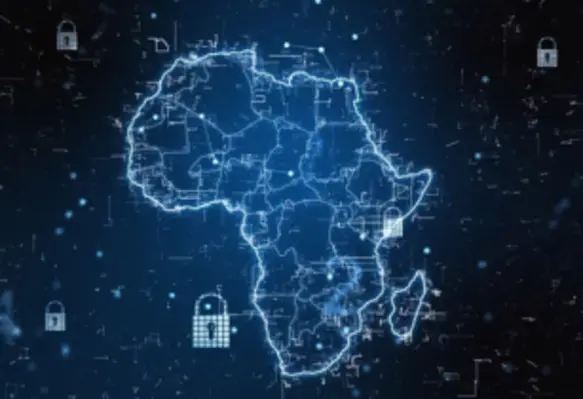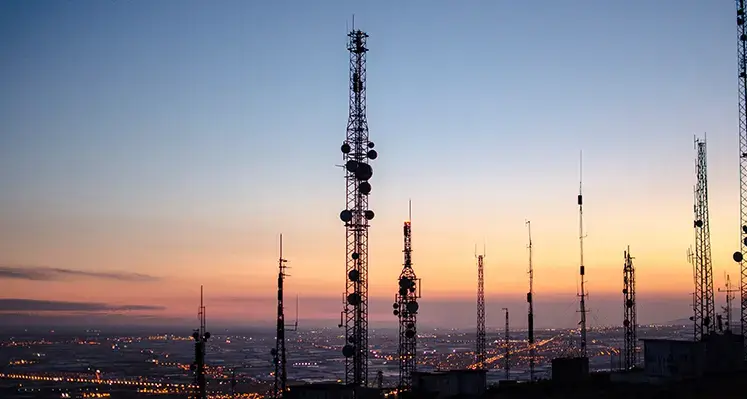The world has taken a big step closer to a greener and more sustainable communications future with the launch of a global consortium organised by Bell Labs.
The consortium, Green Touch, aims to create the technologies needed to make communications networks 1,000 times more energy efficient than they are today.
A thousand-fold reduction is roughly equivalent to being able to power the world’s communications networks, including the Internet, for three years using the same amount of energy that it currently takes to run them for a single day.
Green Touch brings together leaders in industry, academia and government labs to invent and deliver radical new approaches to energy efficiency that will be at the heart of sustainable networks in the decades to come. With its launch, the consortium also has issued an open invitation to all members of the Information and Communication Technology (ICT) community to join forces in reaching this ambitious target.
Leaders speak for greener communications
The Green Touch Initiative founding members include:
• Service Providers: AT&T, China Mobile, Portugal Telecom, Swisscom, Telefonica.
• Academic Research Labs: The Massachusetts Institute of Technology’s (MIT) Research Laboratory for Electronics (RLE), Stanford University’s Wireless Systems Lab (WSL), the University of Melbourne’s Institute for a Broadband-Enabled Society (IBES).
• Government and Nonprofit Research Institutions: The CEA-LETI Applied Research Institute for Microelectronics (Grenoble, France), imec (headquartered in Leuven, Belgium), The French National Institute for Research in Computer Science and Control (INRIA).
• Industrial Labs: Bell Labs, Samsung Advanced Institute of Technology (SAIT), Freescale Semiconductor.
Those expressing support for the initiative include the Energy Department of the American government.
“Truly global challenges have always been best addressed by bringing together the brightest minds in an unconstrained, creative environment. This was what we used when putting a man on the moon and is the same approach we need to implement to address the global climate crisis. The Green Touch initiative is an example of such a response - bringing together scientists and technologists from around the world and from many different disciplines in an environment of open innovation to attack the problem from many different directions,” said Dr. Steven Chu, US Secretary of Energy.
In Europe, the British Energy Secretariat, the French Ministry for Industry, and the Portuguese State Department for Public Works and Communications all backed the initiative.
“The ICT sector is perfectly placed to bring its innovative and technological forces to bear in the low carbon transition as well as in curbing its own carbon footprint. The Green Touch Initiative shows how business can play its part in delivering the low carbon society we are working to achieve. With Government creating an environment in which innovation can flourish, we welcome industry coming together with academia to create the research, technology and solutions necessary to reduce carbon emissions,” said Ed Miliband, Secretary of State for Energy and Climate Change, UK.
“Industry has to play a major role in the drive to increasing global energy efficiency. This is both a matter of environmental responsibility and competitiveness. We regularly endorse such projects in our “pole de compétitivité” (competiveness cluster) policy and the Eureka clusters. This is a particularly crucial area of focus because of increasing usage of ICT and the Internet. The world-wide Green Touch consortium will open the way to generating major technological breakthroughs. France supports this project, which is open to all and in which two major French labs are founding members,” said Christian Estrosi, Minister for Industry, France.
“The Portuguese Government has been taking measures to promote the production of energy by clean technologies. The Green Touch initiative calls our attention to the importance of the network and collaboration between different institutions when we face global challenges as sustainable development. I encourage the participants of this initiative to bring good solutions to promote the energy efficiency of communication networks,” said Paulo Campos, Secretary of State for Public Works and Communications, Portugal.
From Asia, Jong-Soo Yoon, Director General, Ministry of Environment, South Korea, said, “Climate change is an enormous and immediate challenge that needs to be address globally and with bold actions. It is only through harnessing the best minds around the world, regardless of their mother companies, industry, or nationality, that we will make the difference we need to. The Green Touch consortium, with its open innovation model that harnesses the leading minds across the globe and includes experts from every part of ICT, is the model for the sort of radical initiatives that we need to address the huge challenge of global warming.”
Preparing for future growth
Research undertaken by Bell Labs highlights the fundamental change promised by Green Touch, and the need for global collaboration. In light of such research, following an already illustrious history of innovation, Bell Labs is understandably described by Alcatel-Lucent CEO Ben Verwaayen as one of the company's greatest assets. “Over the next decade billions more people will upload and share video, images and information over public and private networks as we communicate with each other in new, rich ways. We also expect ICT usage to dramatically increase as other industries use networks to reduce their own carbon footprints. This naturally leads to an exponential growth in ICT energy consumption which we, as an industry, have to jointly address. This consortium is unique in looking way beyond making incremental efficiency improvements and tapping into innovation and expertise from around the globe to achieve fundamental breakthroughs in ICT carbon emissions reduction,” Gee Rittenhouse, vice president of research at Bell Labs and consortium lead.
This 1,000-fold efficiency target is based on research from Bell Labs that determined that today’s information and communication technology (ICT) networks have the potential to be 10,000 times more efficient then they are today. This conclusion comes from a Bell Labs’ analysis of the fundamental properties of ICT networks and technologies (optical, wireless, electronics, processing, routing, and architecture) and studying their physical limits by applying established formulas such as Shannon’s Law, the formula used to predict the useful capacity of any communications channel.
“With the boom in broadband usage, ICT energy consumption is rapidly increasing and immediate steps need to be taken to address this trend and mitigate its impact,” said Vernon Turner, Senior Vice President and General Manager for Enterprise Computing, Network, Consumer, Telecom and Sustainability at IDC, a leading industry analyst firm. “What distinguishes the Green Touch Initiative is its commitment to a hugely ambitious yet quantifiable goal that is rooted in hard science. Its global profile and multi-disciplinary approach will accelerate the necessary fundamental rethinking and development of new technologies.”
To support its objectives, the Green Touch Initiative will deliver - within five years – a reference network architecture and demonstrations of the key components required to realise this improvement. This initiative also offers the potential to generate new technologies and new areas of industry.
www.greentouch.org





















